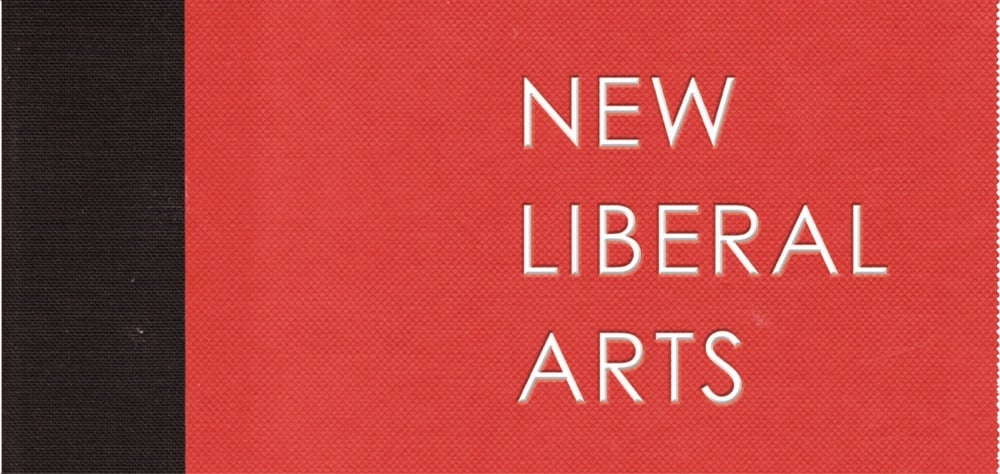Liberal Arts 2.5

Once, Kottke.org’s tagline was “Liberal Arts 2.0.” It’s a terrific description of everything the blog covers and how Jason covers it; unpacking the web with a humanist lens, looking for noteworthy specimens and bigger connections.
It also chimed with “Web 2.0,” which was a popular descriptive and prescriptive phrase at the time.
Tim Berners-Lee famously derided “Web 2.0” as “jargon,” claiming that the web was always intended to be a social and collaborative medium and that the things proponents of a renewal of the web wanted to emphasize were there from the start. Which is… basically accurate!
But the liberal arts badly needed (and still badly need) an update for the age of the web. So many of the big Web 2.0 projects (social networking and commerce, folksonomies, the web as a development platform) either betrayed some of their initial democratizing promises as they were taken over by giant companies, or got crowded out by the same.
And “Web 3.0” — well, the less said about that, the better. A straight marketing play that ropes together a few promising technologies with total dead ends.
Liberal Arts 2.0, though — that’s a concept that still has legs. But perhaps twenty years after Snarkmarket got rolling, and twenty-five years after Kottke.org hung up its shingle, we can propose a modest, incremental (but still significant) update: Liberal Arts 2.5.
In 2009, me and my partners Matt Thompson and Robin Sloan plus a community of collaborators at my old site Snarkmarket were so struck by Jason’s idea of Liberal Arts 2.0 that we decided to make a book that outlined a series of emerging disciplines that we thought might make up a set of New Liberal Arts.
This was pre-Kickstarter, so we rolled it up ourselves. With help from Revelator Press, we created it as a limited-edition paperback book; the print run was just 200 copies, so it’s quite a collectible nowadays. Once we cleared our production costs, we also offered it as a free, Creative Commons-licensed PDF, ebook, and as plain HTML — an early example of what I later called unlocking the commons.
I’m actually quite pleased that the plain HTML version I made (and hand-edited!) so we could turn it into an ebook is still up. The PDF version we had hosted succumbed to linkrot, but it’s still available on Issuu. For fun, I just posted a copy of the original New Liberal Arts PDF on Dropbox just for readers of Kottke.org.
New Liberal Arts is the apotheosis of everything I loved about Snarkmarket. It asks big questions about the past, present, and future, including especially the past/present/future of media. It is a collaborative project we made with our community. And it’s a concrete thing we put into the world, under our own terms, that got people excited and sparked more conversations.
And it’s a conversation that I think is still going. If anything, liberal arts education is even more under attack today than it was in 2009. And between then and now, liberal arts practitioners have had to reflect on what it means to teach, learn, and operate in the world given the rapid rate of technological change — not just between now and when the medieval trivium and quadrivium were formulated, but between now and the postwar university, or even the culture wars of the 1980s and 1990s.
It’s something we need to keep rethinking continually. (And not coincidentally, “rethinking things continually” is something that the liberal arts traditionally has done extremely well.)
Here is our original list of “New” Liberal Arts:
- Attention Economics
- Brevity
- Coding and Decoding
- Creativity
- Finding
- Food
- Genderfuck
- Home Economics
- Inaccuracy
- Iteration
- Journalism
- Mapping
- Marketing
- Micropolitics
- Myth and Magic
- Negotiation
- Photography
- Play
- Reality Engineering
- Translation
- Video Literacy
Contributors included myself, Matt Thompson, Robin Sloan, Andrew Fitzgerald, Gavin Craig, Diana Kimball, Aaron McLearan, Dan Levine, Theresa Mlinarcik, Laura Portwood-Stacer, Jennifer Rensenbrink, Alex Litel, Jimmy Stamp, Tiara Shafiq, Matthew Penniman, Rex Sorgatz, Rachel Leow, and Kasia Cieplak Mayr-Von Baldegg.
If you want to read more about what we had to say about any of these things, please read the book, or browse individual chapters at leisure — it’s really not very long.
But in true Snarkmarket/Liberal Arts 2.0/Web 2.0 fashion, I also want to open up this conversation to the Kottke community.
- What do you think are the new liberal arts?
- How do the liberal arts need to change to reflect new technologies, media ecologies, and social and political transformations (and crises)?
- What do we need to hold onto from liberal arts education that’s in danger of being lost?
- If you were teaching a youth today what they needed to know to be a free person in the world, what subjects would be on your curriculum?





Stay Connected